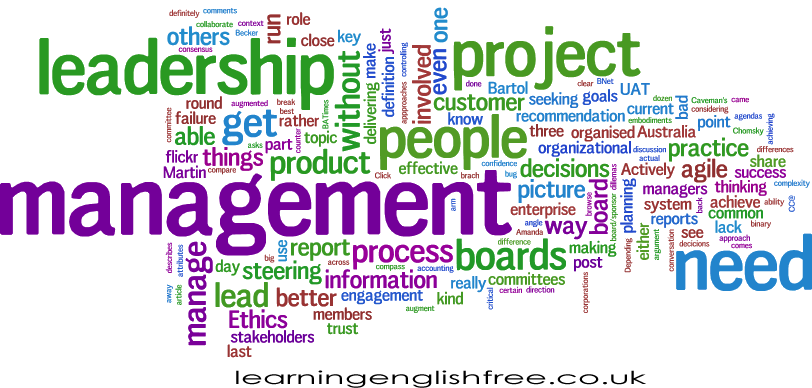
Understanding Business Meeting Vocabulary: A Simple Guide
Welcome to our Business English lesson! Today, we're focusing on essential terms and phrases used in business meetings and office communication. Understanding these terms is important for effective collaboration and decision-making in a professional environment. We'll go through each term with simple explanations and examples, making them easier to understand and use.
Basic Business English: Key Terms for Meetings and Office Communication
-
Absent: Not being present.
- "Our manager is absent today due to a business trip."
-
Accomplish: To successfully complete something.
- "We need to accomplish these tasks before Friday."
-
Address: To deal with a problem or task.
- "We need to address the issue of delayed shipments."
-
Adjourn: To end a meeting.
- "Let’s adjourn the meeting and reconvene next week."
-
Agenda: A list of items to be discussed in a meeting.
- "Please review the agenda before the meeting starts."
-
AGM (Annual General Meeting): A yearly meeting for discussing major issues.
- "We will elect a new chairperson at the next AGM."
-
Allocate: To assign tasks to people.
- "The team leader will allocate tasks for the project."
-
AOB (Any Other Business): Additional items not listed on the agenda.
- "Is there any AOB before we close the meeting?"
-
Apologies: Excuses for absence.
- "Two members sent their apologies for today's meeting."
-
Ballot: A secret vote.
- "We'll decide by a ballot."
-
Board of Directors: A group of elected individuals who govern a company.
- "The board of directors will meet to approve the budget."
-
Boardroom: A room where formal meetings are held.
- "The boardroom is reserved for our meeting on Friday."
-
Brainstorm: To generate ideas as a group.
- "Let’s brainstorm ideas for the new marketing campaign."
-
Casting Vote: A deciding vote, usually by the chairperson.
- "The chairperson's casting vote broke the tie."
-
Chairperson: The person leading a meeting.
- "As the chairperson, I’d like to welcome our new team member."
-
Clarification/Verification: Asking for further explanation or proof.
- "Could we have some clarification on the new policy?"
-
Closing Remarks: Final comments at the end of a meeting.
- "In his closing remarks, the manager thanked everyone for their hard work."
-
Collaborate: To work together.
- "We need to collaborate effectively to meet our targets."
-
Commence: To begin.
- "The meeting will commence as soon as everyone arrives."
-
Comment: To give an opinion.
- "Does anyone have a comment on the proposal?"
-
Conference: A formal meeting for discussion.
- "The annual sales conference is next month."
-
Conference Call: A telephone meeting between multiple participants.
- "We’ll have a conference call with the overseas team."
-
Confidential: Private information.
- "This financial report is confidential."
-
Consensus: General agreement.
- "We reached a consensus on the marketing strategy."
-
Deadline: A date or time by which something must be done.
- "The deadline for the report submission is next Monday."
-
Designate: To officially choose someone to do something.
- "A team member will be designated to lead the project."
-
Formality: A required or customary procedure.
- "Signing the document is a mere formality."
-
Grievance: A complaint or problem.
- "Please report any grievances to HR."
-
Guest Speaker: An invited speaker at an event.
- "Our guest speaker will discuss digital marketing strategies."
-
Implement: To put something into action.
- "The new policy will be implemented next month."
-
Mandatory: Required or compulsory.
- "Attendance at the training session is mandatory."
-
Minutes: A written record of a meeting.
- "Let’s review the minutes from our last meeting."
-
Motion: A formal proposal.
- "A motion to extend business hours was proposed."
-
Objectives: Goals to be achieved.
- "Our main objective is to increase customer satisfaction."
-
Opening Remarks: The initial comments in a meeting.
- "In my opening remarks, I’d like to welcome everyone."
-
Overhead Projector: A device for projecting images onto a screen.
- "We'll use the overhead projector for the presentation."
-
Participant: A person taking part in a meeting or event.
- "Thank you to all participants for your input."
-
Proxy Vote: A vote cast by one person on behalf of another.
- "I’ll be casting a proxy vote for the absent member."
-
Punctual: Being on time.
- "Please be punctual for tomorrow’s meeting."
-
Recommend: To suggest something as a good idea.
- "I recommend updating our software."
-
Show of Hands: Voting by raising hands.
- "Let's have a show of hands to decide the issue."
-
Strategy: A plan of action.
- "We need a solid strategy to increase our market share."
-
Unanimous: Complete agreement among everyone.
- "The decision was unanimous."
-
Vote: To express a choice or opinion.
- "All in favour; please vote now."
-
Wrap-Up: To conclude.
- "Let’s wrap up this meeting and summarize the key points."
Understanding these key business terms is crucial for effective communication in meetings and day-to-day office interactions. This lesson provides clear and simple explanations of important terms, helping you navigate business conversations with confidence.
